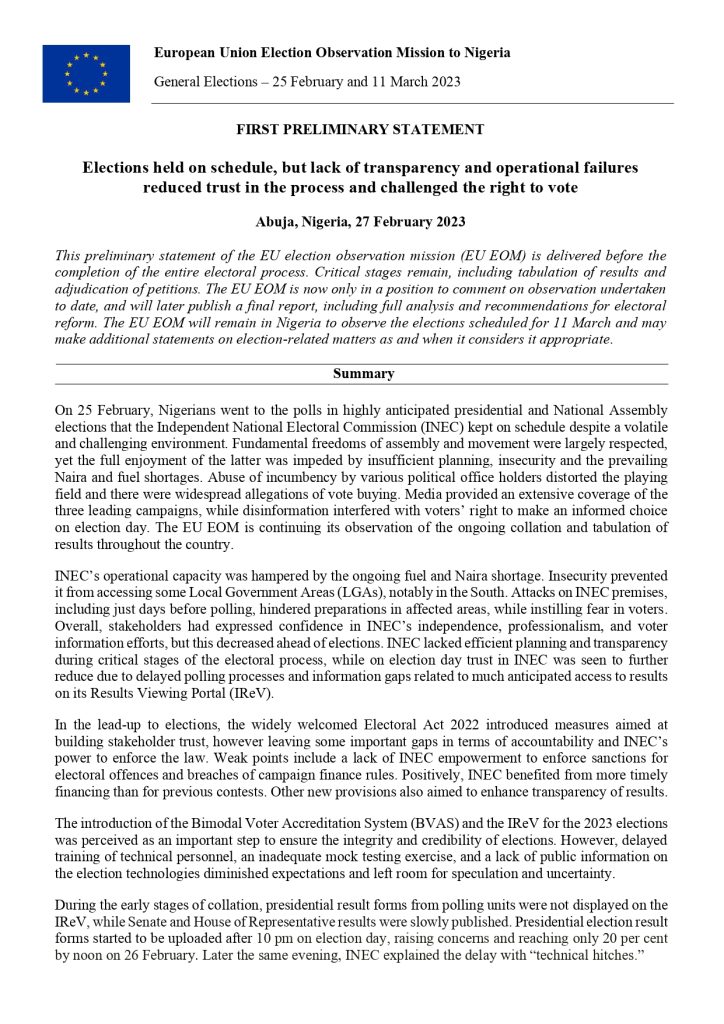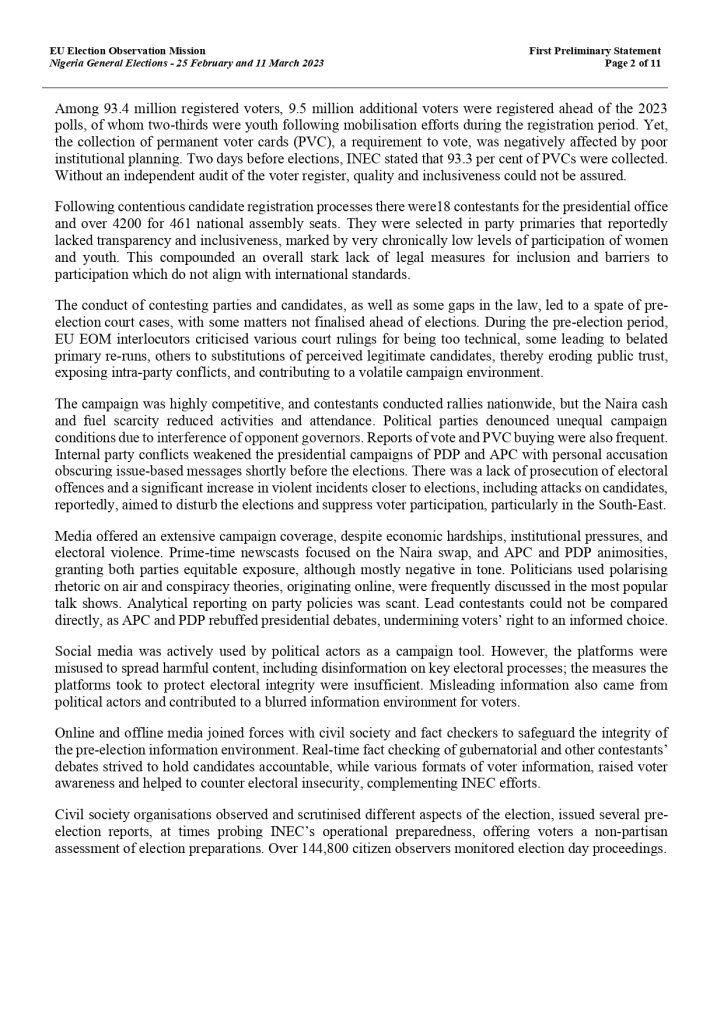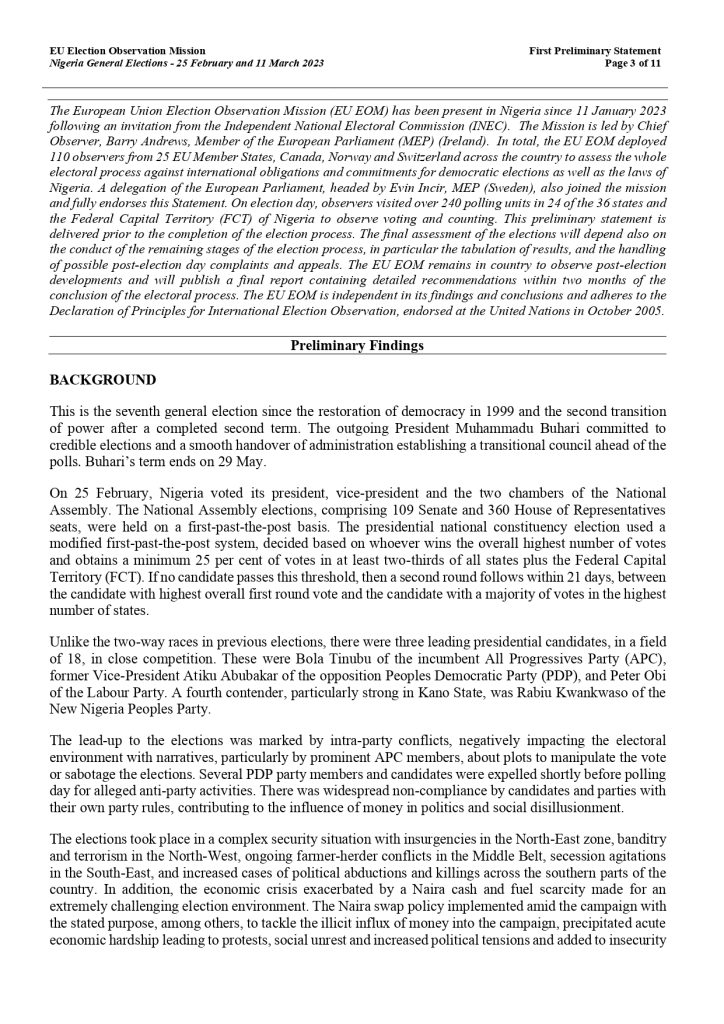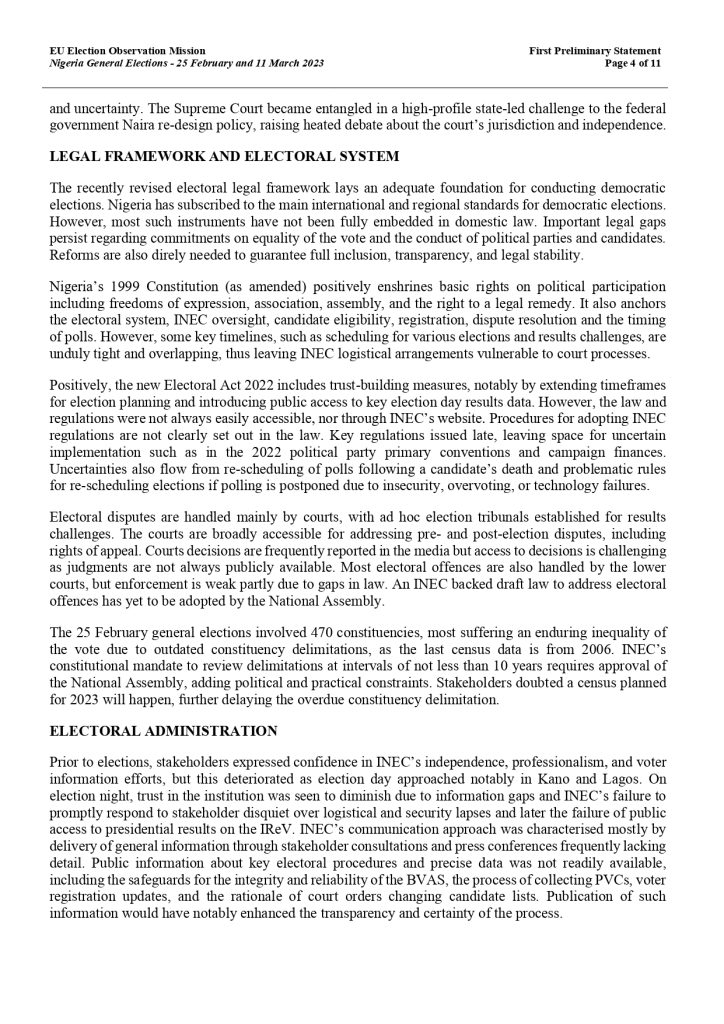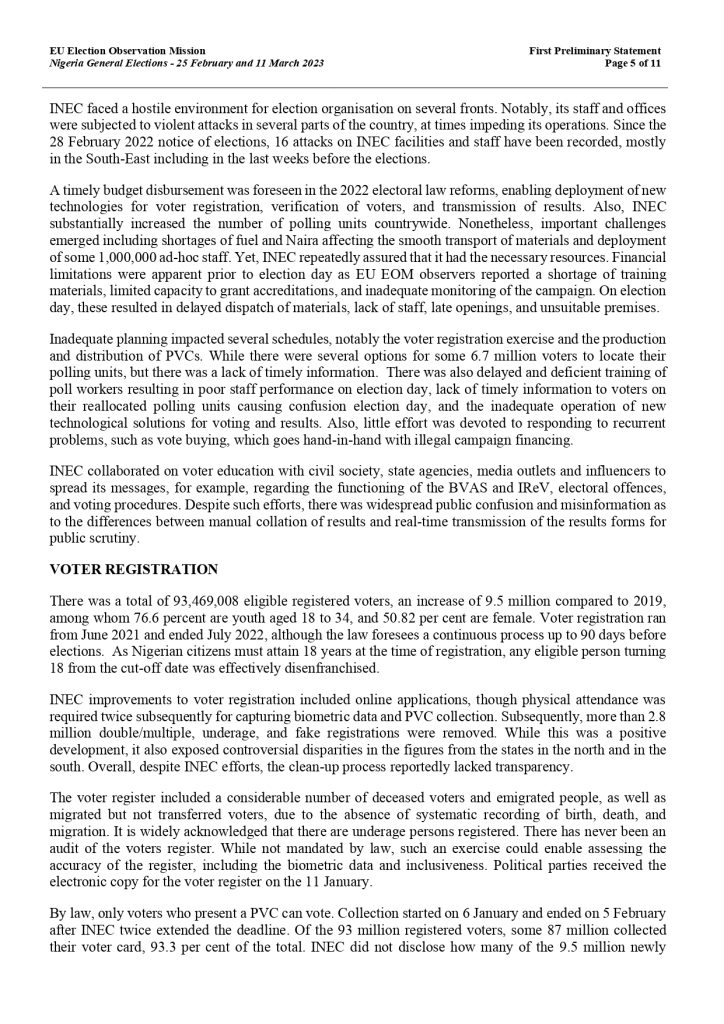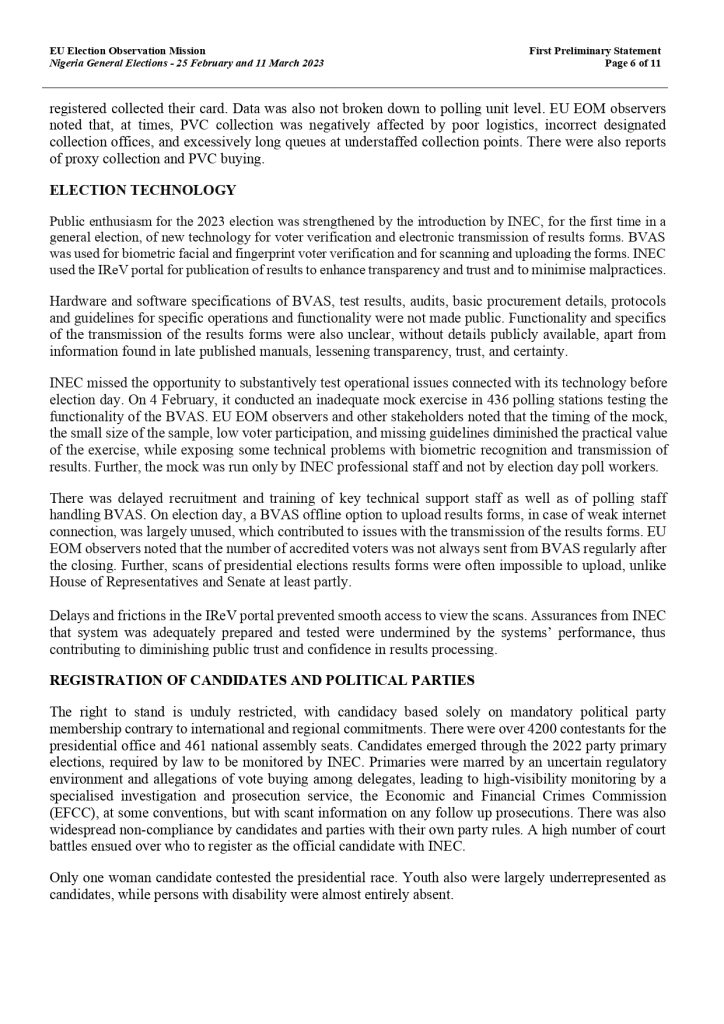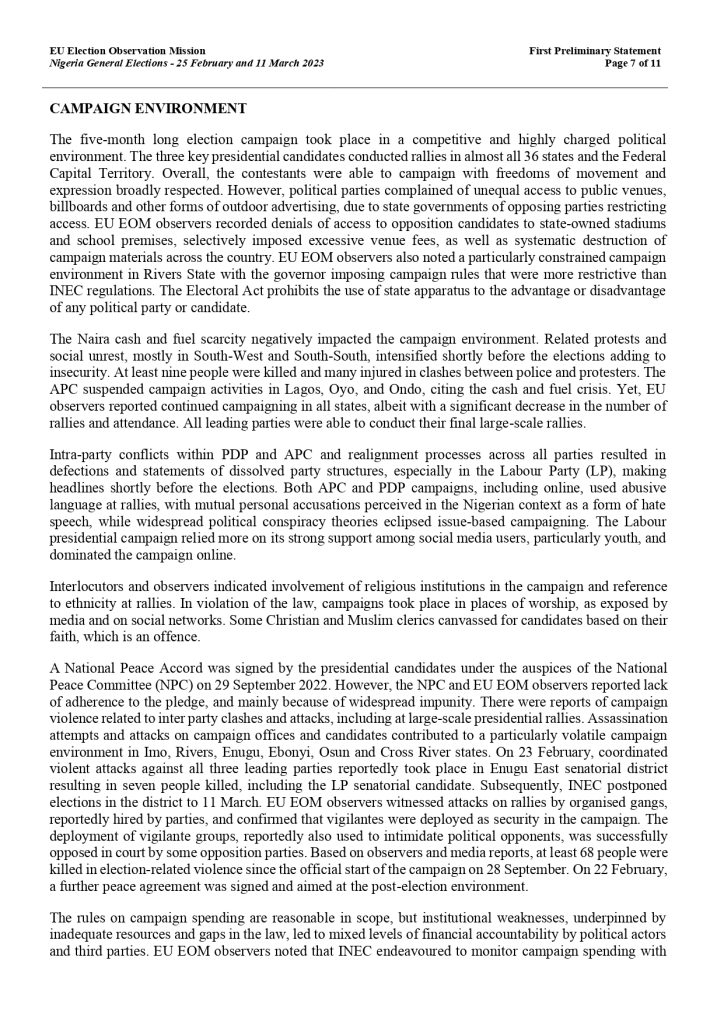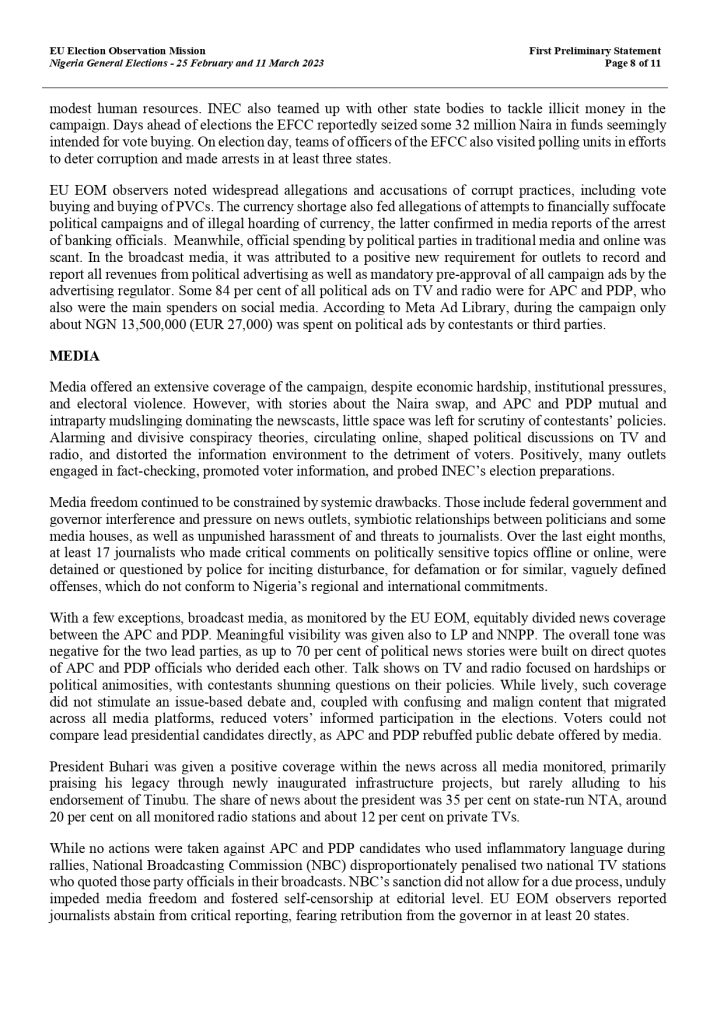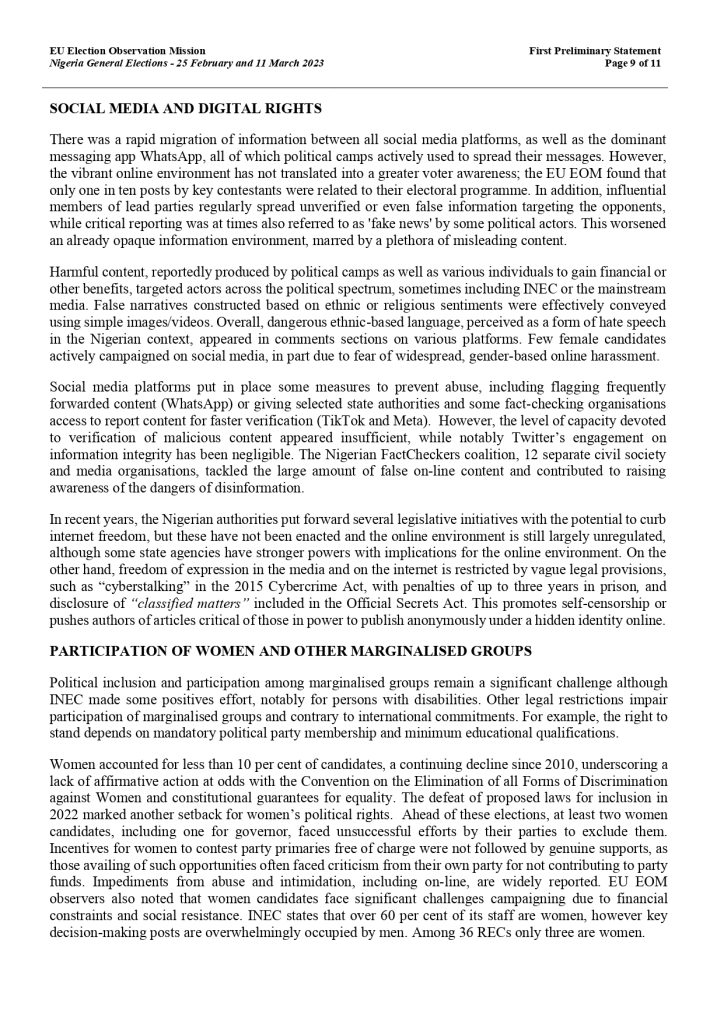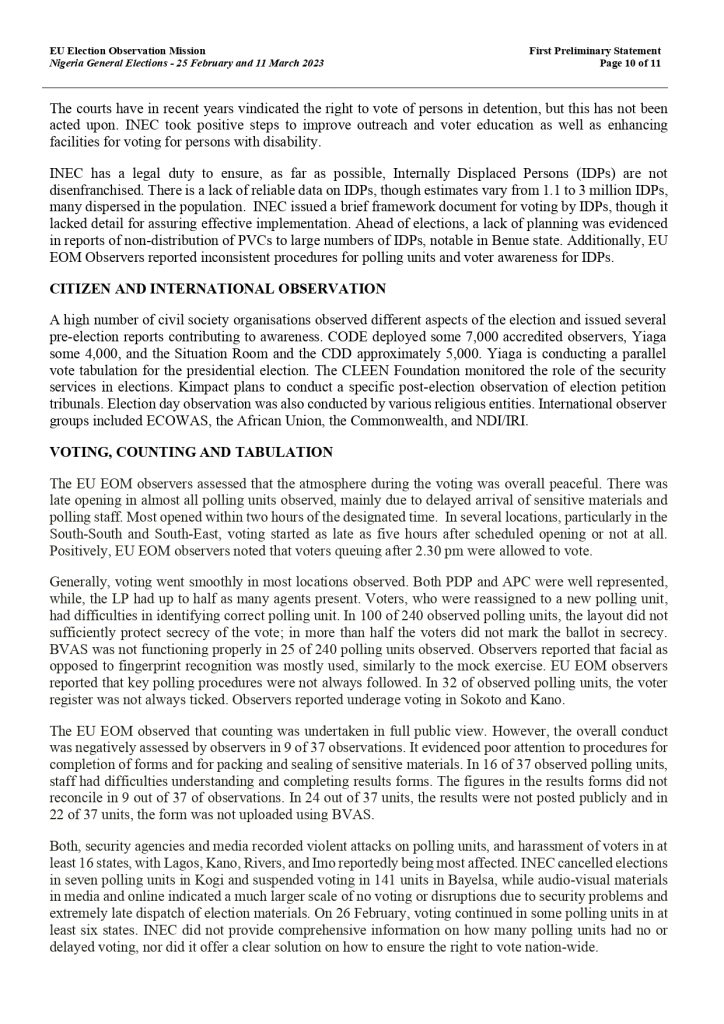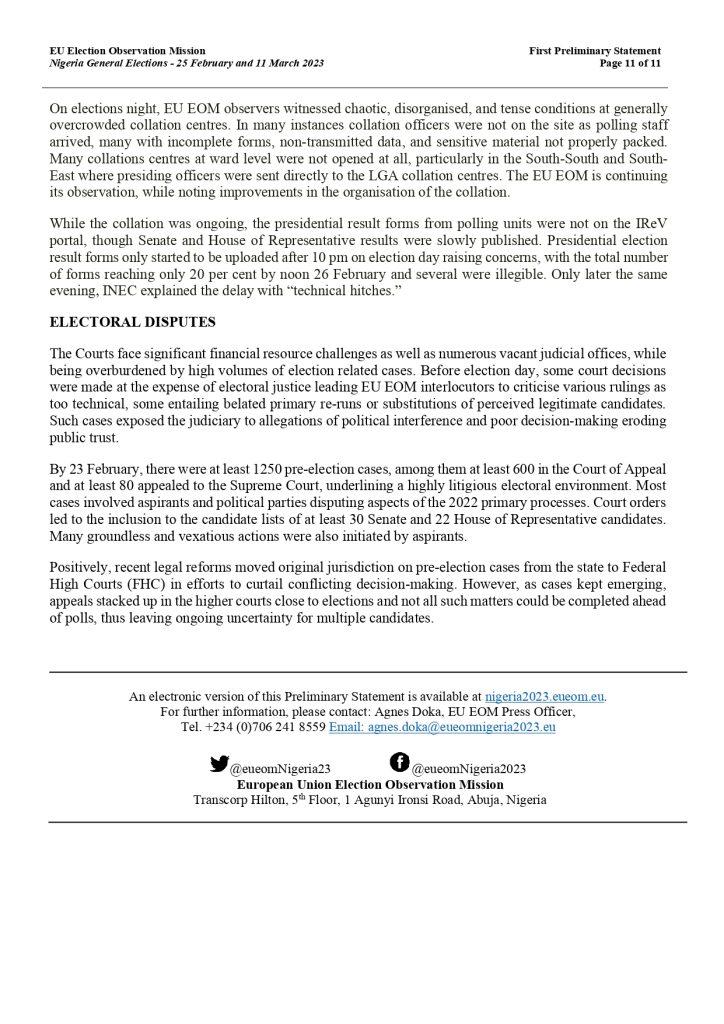Nigeria’s 2023 presidential election is deemed “distorted” and unreliable by the European Union
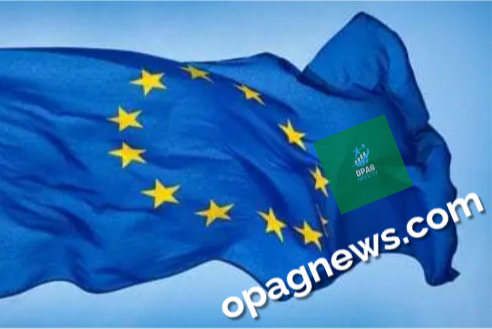
Nigeria’s 2023 presidential election is deemed “distorted” and unreliable by the European Union
Thank you for reading this post, don't forget to subscribe!In spite of a turbulent and difficult climate, the Independent National Electoral Commission (INEC) managed to hold the highly anticipated Presidential and National Assembly elections on schedule.
The basic rights to assemble and move about were mostly upheld, but the latter could not be fully exercised because of inadequate planning, security risks, and ongoing Naira and fuel shortages.
Vote buying was widely suspected, and incumbent political office holders abused their power to tilt the playing field.
The three major campaigns were extensively covered by the media, however false information prevented voters from making an informed decision on election day. The continuous collation and tabulation of results around the nation is being observed by the EU EOM.
The continued fuel and Naira deficit limited INEC’s ability to operate. It was unable to enter some Local Government Areas (LGAs) due to insecurity, particularly in the South. Election preparations in impacted areas were hampered by attacks on INEC facilities, some of which occurred just days before voting.
Stakeholders had generally expressed confidence in INEC’s impartiality, professionalism, and voter education initiatives, although this confidence had declined in the run-up to the elections.
On election day, trust in INEC was considered to further decline as a result of delayed polling processes and information gaps relating to much-anticipated access to results on its Results Viewing Portal. INEC lacked effective preparation and openness during crucial stages of the electoral process (IReV).
The largely praised Electoral Act 2022 contained steps to increase stakeholder trust in the run-up to elections, but it also had some significant oversights regarding accountability and INEC’s ability to uphold the law. Bad points include the fact that INEC lacks the authority to impose penalties for electoral offenses and violations of campaign finance laws. Positively, INEC benefited from more prompt funding compared to prior competitions. Other recent changes also seek to increase outcomes transparency.
It was believed that the implementation of the IReV and the Bimodal Voter Accreditation System (BVAS) for the elections in 2023 was a crucial step in ensuring the legitimacy and integrity of elections. However, a lack of public knowledge about the election technologies, a poor mock testing exercise, and a delay in technical employee training reduced expectations and created room for rumor and confusion.
Senate and House of Representative results were slowly released while presidential result forms from polling places were not shown on the IReV during the early phases of collation. Concerns were raised when result forms for the presidential election began to be submitted after 10 p.m. on election day, and only 20% had been uploaded by noon on February 26. Later that evening, INEC cited “technical problems” as the cause of the delay.
Following mobilization efforts throughout the registration period, 9.5 million more voters—out of the 93.4 million already registered voters—were enrolled ahead of the 2023 elections, with two-thirds of them being young people. However, shoddy institutional planning had a severe impact on the gathering of permanent voter cards (PVC), which is a necessity to vote. 93.3 percent of PVCs were collected, according to INEC’s statement two days before the poll. Quality and inclusivity could not be guaranteed without an impartial audit of the voter rolls.
There were 18 candidates vying for the presidency after difficult candidate registration processes, and more than 4200 for the 461 seats in the national legislature. They were chosen through allegedly opaque, non-inclusive party primaries with historically low participation rates for women and young people. This made the overall severe lack of legal protections for inclusion and participation barriers that do not meet international standards even worse.
A flurry of pre-election court proceedings resulted from the behavior of competing parties and candidates as well as some legal shortcomings, with some cases not being resolved in time for the polls. Various court rulings were criticized by EU EOM interlocutors during the pre-election period for being overly technical. Some of these rulings resulted in belated primary re-runs, while others forced the replacement of candidates who were thought to be legitimate. This undermined public confidence, exposed intra-party conflicts, and created a tense campaign environment.
The campaign was fiercely contested, and candidates held rallies all across the country, although participation and attendance were affected by the shortage of petrol and Naira currency.
Political parties criticized the unfair campaign conditions brought by by the interference of rival governors. Voting and PVC purchases were frequently reported.
Shortly before the polls, personal accusations obscured issue-based messages, weakening the PDP and APC presidential campaigns. A considerable surge in violent occurrences, including attacks on candidates, occurred in the weeks leading up to elections, purportedly with the intention of stifling voting and disrupting the elections, especially in the South-East. Electoral offenses were not being prosecuted.
Even in the face of adversity in the economy, institutional pressure, and electoral violence, the media provided thorough coverage of the campaign. The Naira exchange and the hostilities between the APC and PDP were the main topics of prime-time newscasts, giving both parties equal exposure but generally negative coverage. On-air politicians used divisive language, and the most well-liked talk shows routinely covered conspiracy theories that had their origins online. There was a lack of analytical reporting on party positions. As APC and PDP rejected presidential debates, limiting voters’ freedom to make an educated decision, leading candidates could not be directly compared.
Political figures made aggressive use of social media as a tool for their campaigns. The platforms’ procedures to ensure election integrity were weak, and they were exploited to propagate harmful content, including false information about important political processes. Voters’ access to accurate information was hampered by misleading information from political actors.
Along with civic society and fact-checkers, online and offline media worked to protect the accuracy of the pre-election information environment. Aiming to hold candidates accountable, real-time fact checking of debates between candidates for governor and other offices was conducted, and INEC’s efforts were complemented by numerous voter information formats that increased voter knowledge and fought electoral instability.
Civil society organizations monitored and investigated many election-related issues, published a number of pre-election reports, occasionally examining INEC’s operational readiness, and provided voters with an unbiased assessment of election preparations. On election day, more than 144,800 citizen observers observed the process.
